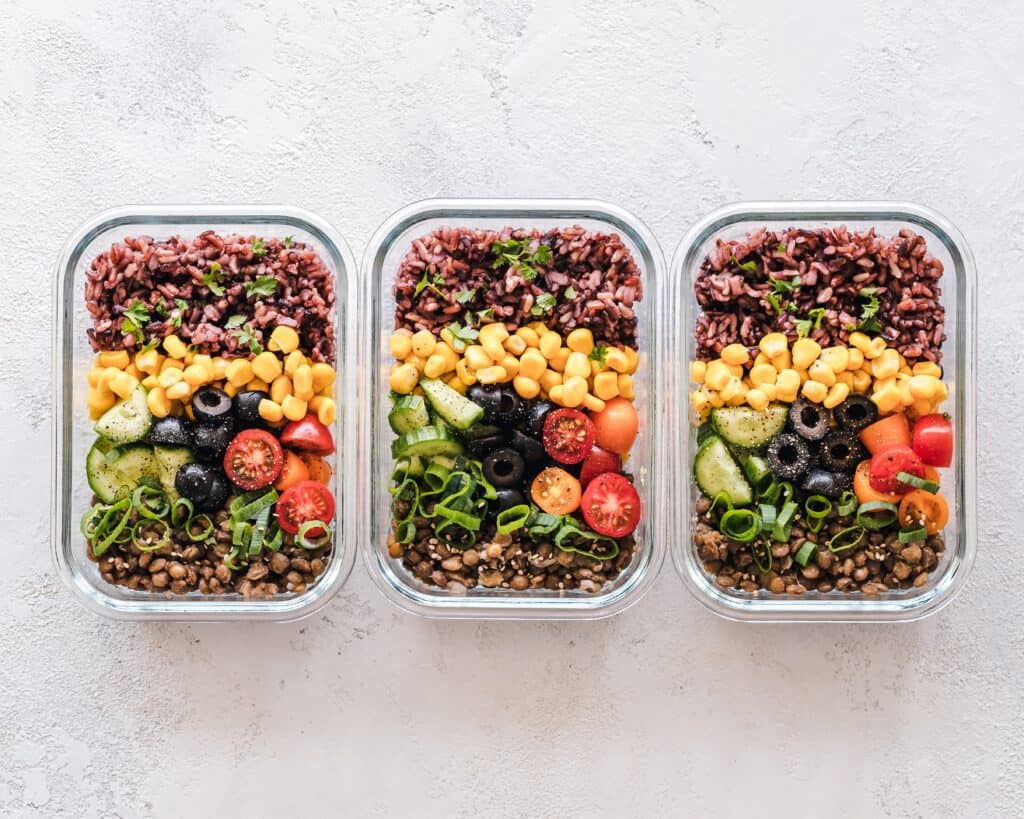There are lots of ways to make eco-friendly choices no matter where you go. College is no exception! You can take your sustainable living habits to your college dorm. These can be small or big actions that you can do on a daily basis.
Here are some ideas you can put to use!
{this post contains Amazon affiliate links}
Conserve Energy
-
- Use energy-efficient LED light bulbs.
- Unplug electronics and chargers when not in use.
- Use natural light during the day when you can, to reduce using energy
- Consider air-drying your clothes rather than using a dryer, if possible (this will save money, too!).
Conserve water
-
- Take shorter showers.
- Use a reusable water bottle instead of buying bottled water.
Eco-Friendly Decor
-
- Choose second-hand or upcycled furniture and decor items.
- Decorate with plants, which can improve air quality.
- Use natural and sustainable materials like bamboo, reclaimed wood, or organic fabrics for rugs, curtains, and bedding.
Eco-Friendly School Supplies
-
- Purchase eco-friendly school supplies when you can, such as recycled paper notebooks. We love the designs of Decomposition Books!
- Save and reuse your backpack for more than just one school year when possible.

Reduce, Reuse, Recycle
-
- Reduce waste by using reusable containers, utensils, and bags for meals and snacks.
- Recycle paper, cardboard, and plastic items properly. If your campus offers composting, take advantage of that as well!
Green Cleaning:
-
- Use environmentally friendly cleaning products.
- Use rags or recycled paper towels instead of traditional paper towels.
- Make your own cleaning solutions using natural ingredients like vinegar, baking soda, and lemon juice

Reduce Plastic Waste
-
- Avoid single-use plastic products like disposable utensils and water bottles.
- You can find great reusable water bottles and reusable straws.
- Use reusable shopping bags and produce bags when shopping.
Conserve Resources
-
- Print only when necessary and use both sides of the paper.
- Choose digital textbooks and notes over printed materials.
Energy-Efficient Appliances:
-
- If allowed, bring energy-efficient appliances like a mini-fridge or microwave, and look for the Energy Star rating.
Get Involved:
-
- Join or start an eco-friendly club or group on campus.
- Participate in campus sustainability initiatives and events.
- Share your green habits with others.
Reduce Food Waste:
-
- Plan meals carefully to avoid overbuying groceries.
- Compost food scraps if your dorm has a composting system.
Bike or Walk:
-
- Use a bicycle or walk instead of driving short distances if possible. This reduces your carbon footprint.
Remember, even small eco-friendly changes in your dorm can make a big difference over time. By incorporating these practices into your daily life, you can contribute to a more sustainable and eco-friendly campus environment.






I love these ideas! My oldest will be going to college in a couple of years, and I’m going to use all of these tips. The decomposition notebooks are fantastic!
This article is a ‘must-read’ for any college student or parent sending their kids to school. I also found some new eco challenges for my own home so thanks for the insights.
Some fantastic ideas here for helping my kids set up their dorm rooms in an eco friendly way. Will go over this article with them.
We have become a throw-away society and until companies decide to make products that last longer or reusable, the world will only grow trash more. I do love using my erasable notebooks instead of paper. One of my favs.
I didn’t move away from university so never had a ‘dorm’ to think about. But these are great tips to create an eco-friendly space. We only have LED lights in our home to help with energy consumption x
Bringing eco-friendly habits to college dorm life is a game-changer. Loving the tips, especially the idea of using natural light and air-drying clothes. Small actions, big impact! Thanks for sharing these sustainable insights.
Great tips and habits to adopt. I think it’s easier to adopt new and greener lifestyle when you’re alone especially in a small space.
Great ideas. It’s become all to easy to create so much trash. It’s way too much to be sustainable.
My daughter is starting college this fall, and we’re already planning to implement some of your ideas—especially the eco-friendly decor and reducing plastic waste.
These are some amazing ideas. i like the idea of using natural light and air-drying clothes.
Great tips for a more eco-friendly dorm life! Planning meals and using a bike/walk instead of driving are smart choices. Thanks for sharing these sustainable practices!
These are great ideas, I’ve had the experience of being in the dorm, and would be amazing if I did these. Maybe in the future if I finish my studies.